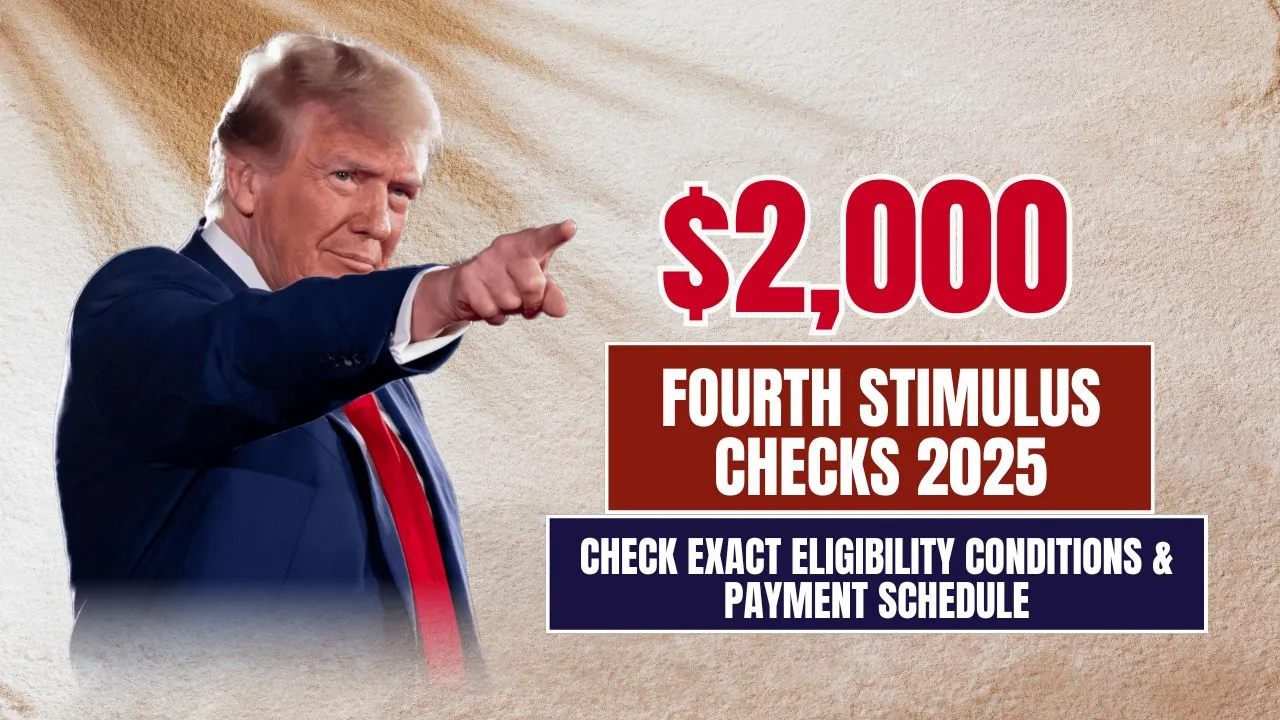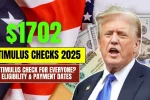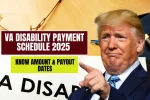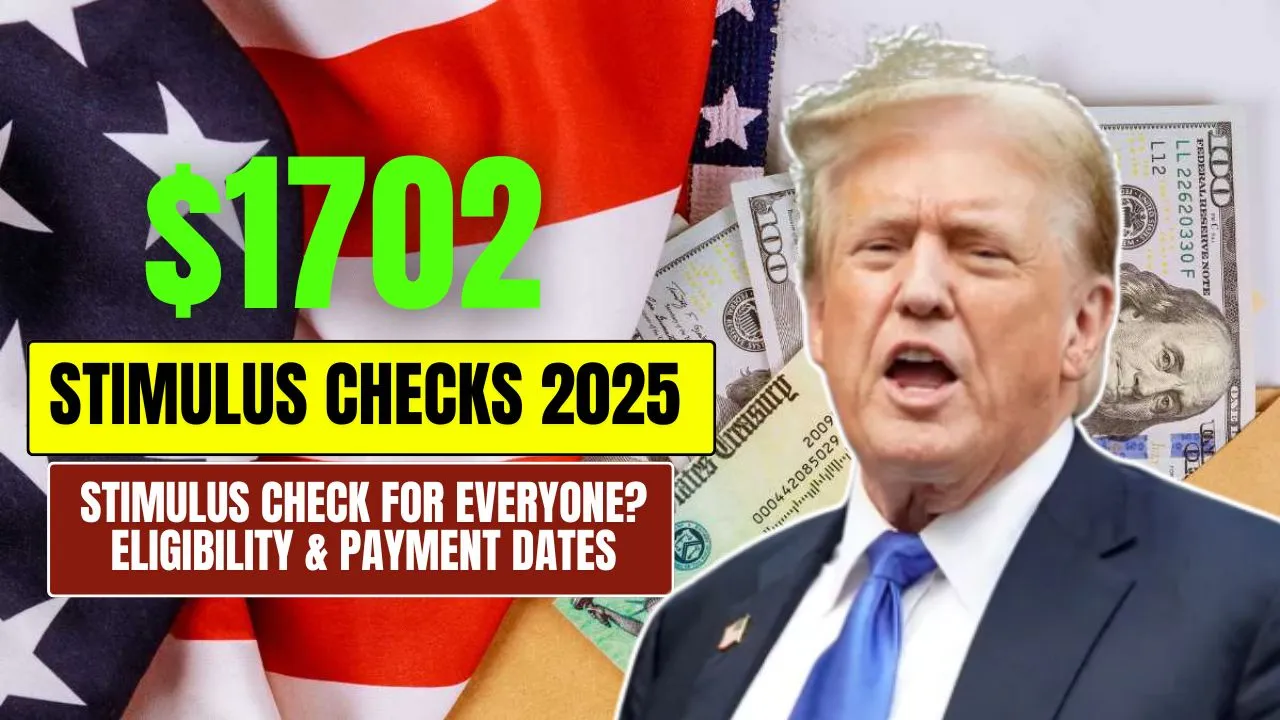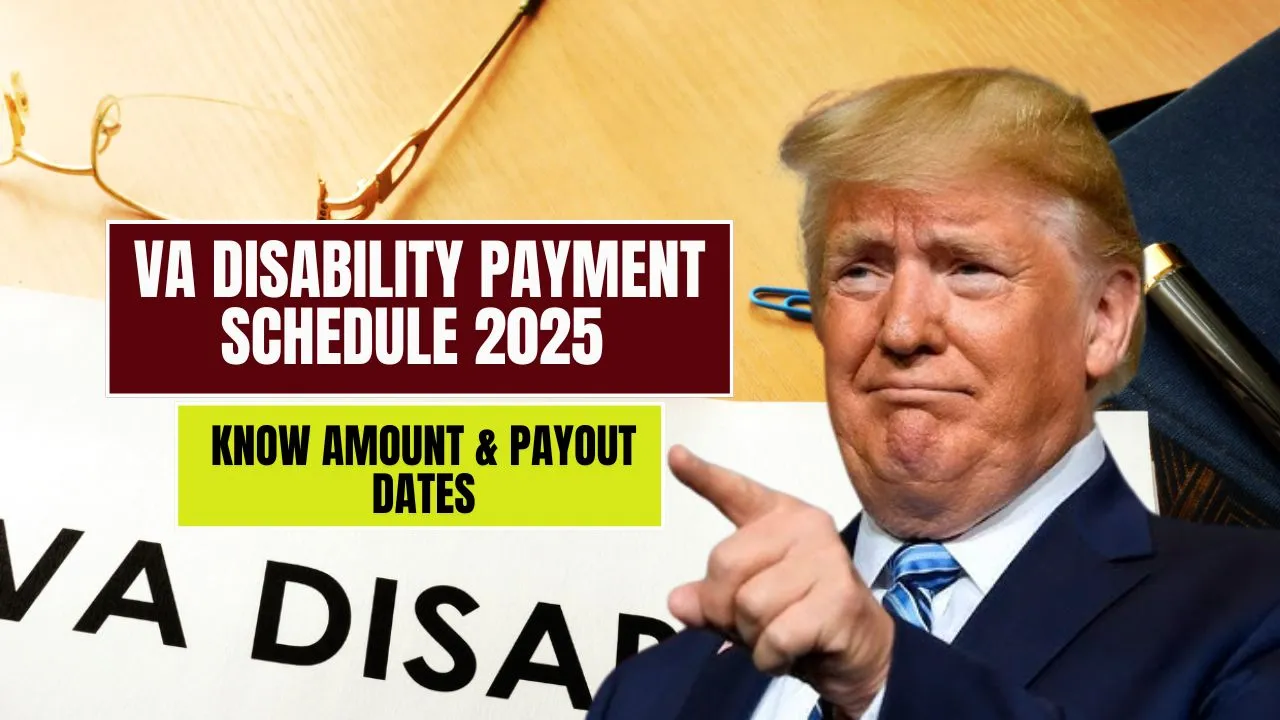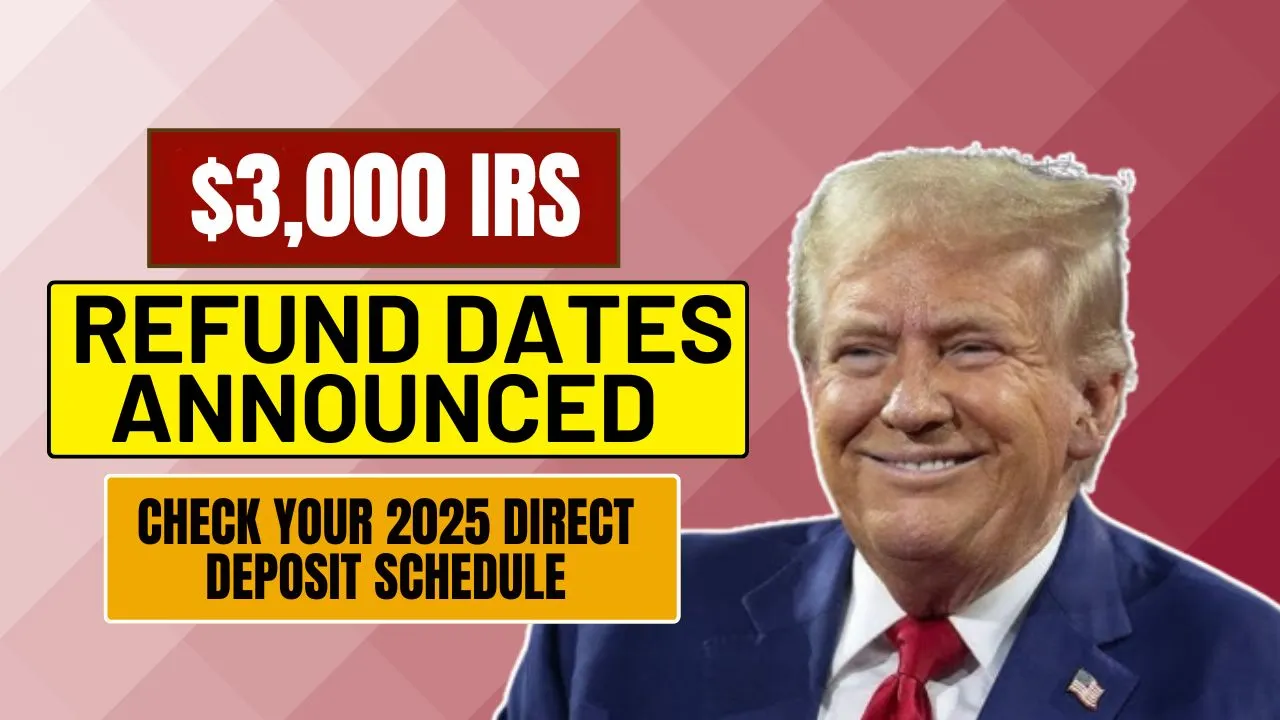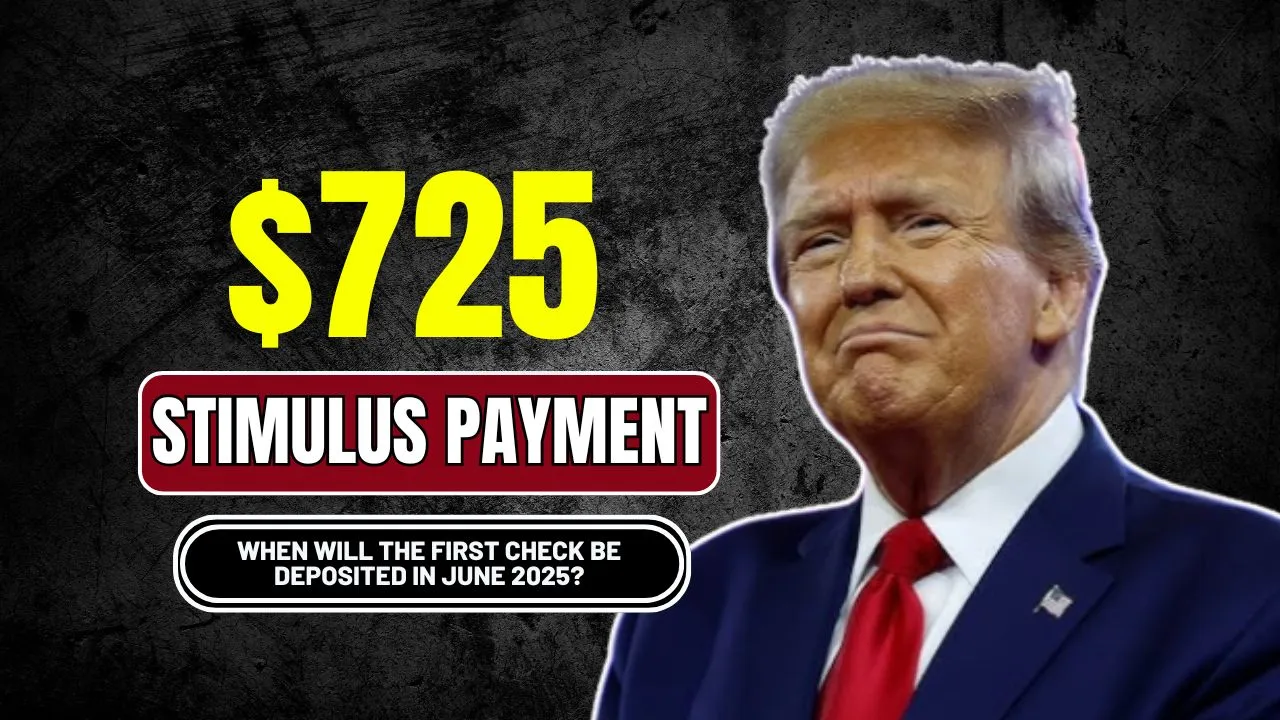$2000 Fourth Stimulus Checks 2025: With inflation continuing to affect household budgets across the United States, the idea of a fourth round of stimulus checks has gained attention. Rising prices for basic necessities like food, gas, and rent are leaving many Americans searching for financial relief. In response to these ongoing struggles, discussions have reignited around the possibility of a $2,000 Fourth Stimulus Check to help ease the pressure.
Although not officially approved yet, lawmakers are actively debating the proposal. The $2,000 Fourth Stimulus Checks 2025 would offer significant financial aid if passed, especially for low- and middle-income families. This article will explore who might qualify, the potential payment timeline, how payments would be issued, and what alternatives may exist if the checks don’t happen.
$2,000 Fourth Stimulus Checks 2025
The proposed $2,000 Fourth Stimulus Checks 2025 are aimed at helping Americans manage rising living costs. While the government has not finalized or passed the legislation, the framework is expected to mirror previous stimulus efforts. Individuals earning below a certain threshold and those on federal assistance programs would likely be the main beneficiaries.
These checks, if approved, would be distributed by the Internal Revenue Service (IRS), which previously managed similar payments. Direct deposits, paper checks, and prepaid debit cards are among the methods expected for distribution. While no official payment date has been set, many predict that payments could start in late 2025 or early 2026.
Overview Table
| Detail | Information |
| Authority | Internal Revenue Service (IRS) |
| Program Name | IRS Fourth Stimulus Check |
| Country | United States of America |
| Amount Proposed | $2,000 |
| Payment Start (Expected) | Late 2025 or Early 2026 |
| Eligibility | Based on income and benefits status |
| Official Website | irs.gov |
Eligibility Requirements for the $2,000 Fourth Stimulus Check
If approved, the $2,000 Fourth Stimulus Checks 2025 will likely use the same eligibility rules as previous rounds. The goal is to assist Americans who are facing financial hardship due to inflation, unemployment, or limited income sources.
Expected eligibility conditions include:
- Income Limits:
- Single individuals earning less than $75,000 per year
- Married couples earning less than $150,000 annually
- Single individuals earning less than $75,000 per year
- Social Security Recipients:
Individuals receiving SSI, SSDI, or other federal benefits would likely qualify automatically, similar to past stimulus checks. - Tax Filers and Non-Filers:
Taxpayers who have filed returns in recent years will be considered based on their income records. Those who don’t file taxes might need to update their information with the IRS to be included.
These conditions are meant to prioritize individuals and families who need the most help. Keeping IRS records up to date is essential to ensure timely delivery.
$2,000 Fourth Stimulus Check Payment Schedule
As of now, there is no confirmed date for when the stimulus checks might be issued. However, if Congress approves the measure, experts anticipate a rollout starting in late 2025 or early 2026.
Payment distribution methods include:
- Direct Deposits:
The quickest and most common method, for those with bank information already on file with the IRS. - Paper Checks:
For individuals who do not use direct deposit or have not provided banking details. - Prepaid Debit Cards:
A secure alternative for those who prefer card payments or lack a checking account.
To avoid delays, recipients should check their information on the IRS website and update their banking or mailing details if needed.
What Happens if the $2,000 Stimulus Check Doesn’t Happen?
While the $2,000 Fourth Stimulus Checks 2025 would be a significant relief for many, there’s a chance that Congress may not approve the payment. In that case, the government may turn to alternative programs to support those in need.
Potential alternatives include:
- Child Tax Credit (CTC):
Monthly CTC payments may be expanded for families with children under 17. - SNAP Benefits:
Additional funds for the Supplemental Nutrition Assistance Program to help with food costs. - Rent and Housing Assistance:
More resources could be allocated to prevent evictions and assist with rent. - Unemployment Benefits:
Enhanced unemployment programs may be introduced or extended for jobseekers.
These alternatives can still offer meaningful support and may be easier for lawmakers to pass quickly.
Concerns About Future Stimulus Payments
One of the main criticisms of earlier stimulus rounds was that certain groups—particularly people with disabilities or those not actively employed—felt left out or experienced delays in receiving aid. Lawmakers are now more aware of these concerns and are working to ensure that if the $2,000 Fourth Stimulus Checks 2025 are approved, they are inclusive and automatic for all eligible groups.
This includes:
- People on SSI, SSDI, and Social Security
- Non-tax filers with low income
- Retirees and disabled individuals
Making sure that all these individuals are covered is a critical part of the ongoing discussions in Congress.
FAQs
Q: Who qualifies for the $2,000 Fourth Stimulus Check?
A: Most likely, individuals earning under $75,000 and married couples earning under $150,000. Social Security, SSI, and SSDI recipients would likely qualify automatically.
Q: When will the payments be sent?
A: There is no confirmed date, but payments may begin in late 2025 or early 2026 if approved.
Q: How will the payment be delivered?
A: Through direct deposit, mailed check, or prepaid debit card, depending on the IRS records.
Q: What happens if the stimulus isn’t approved?
A: Other support may be provided through expanded Child Tax Credit, SNAP, housing aid, and unemployment programs.
Q: Do non-tax filers need to apply?
A: Possibly. If you’re not required to file taxes, make sure your information is up to date with the IRS to avoid being missed.
Conclusion
While the $2,000 Fourth Stimulus Checks 2025 haven’t been confirmed, they remain a strong possibility as lawmakers look for ways to help Americans cope with inflation and high living costs. If approved, the checks could make a meaningful difference for millions of households across the country. Until then, it’s important to stay informed, check eligibility criteria, and prepare by keeping your information current with the IRS.
If you found this article helpful, share it with others and follow updates on the IRS website or official government sources for real-time announcements.
